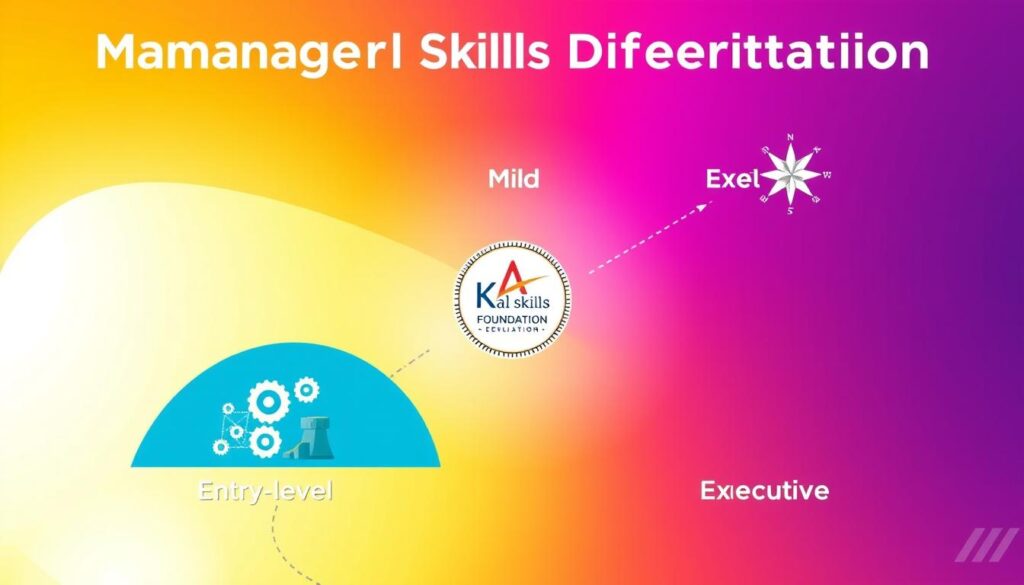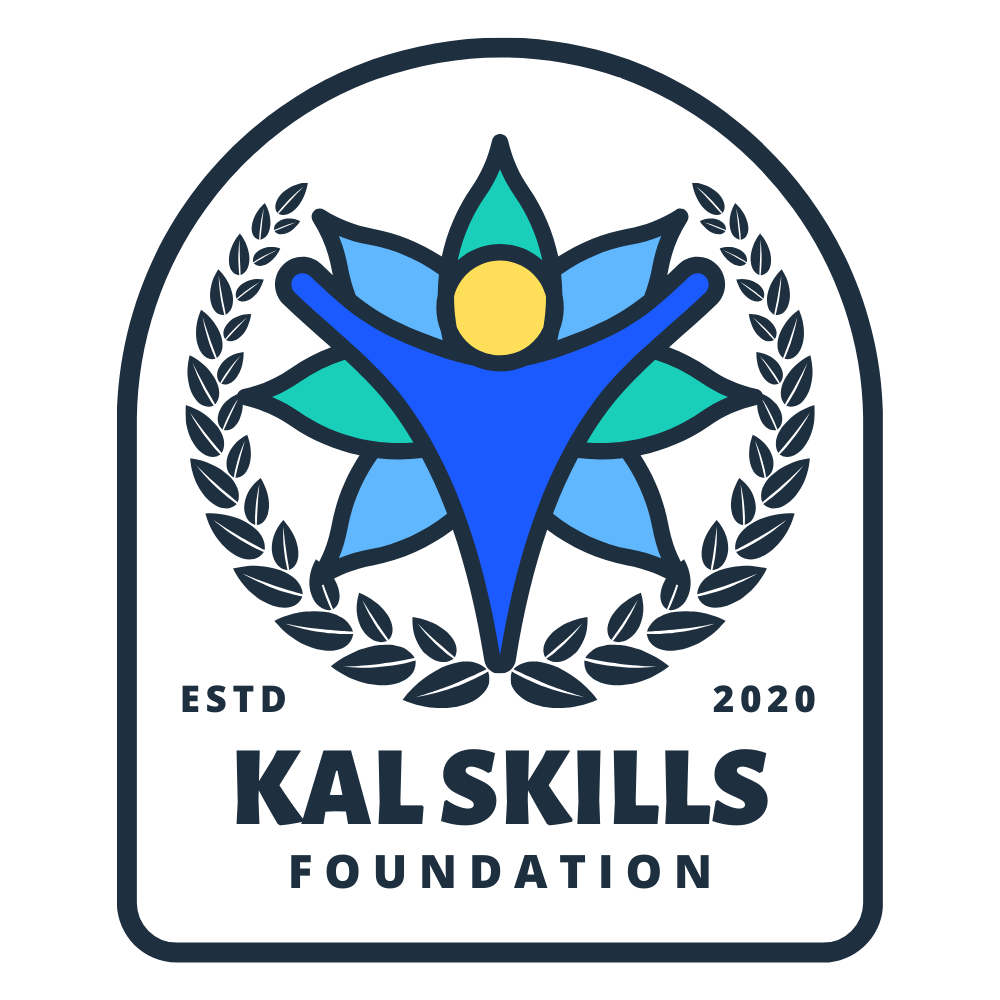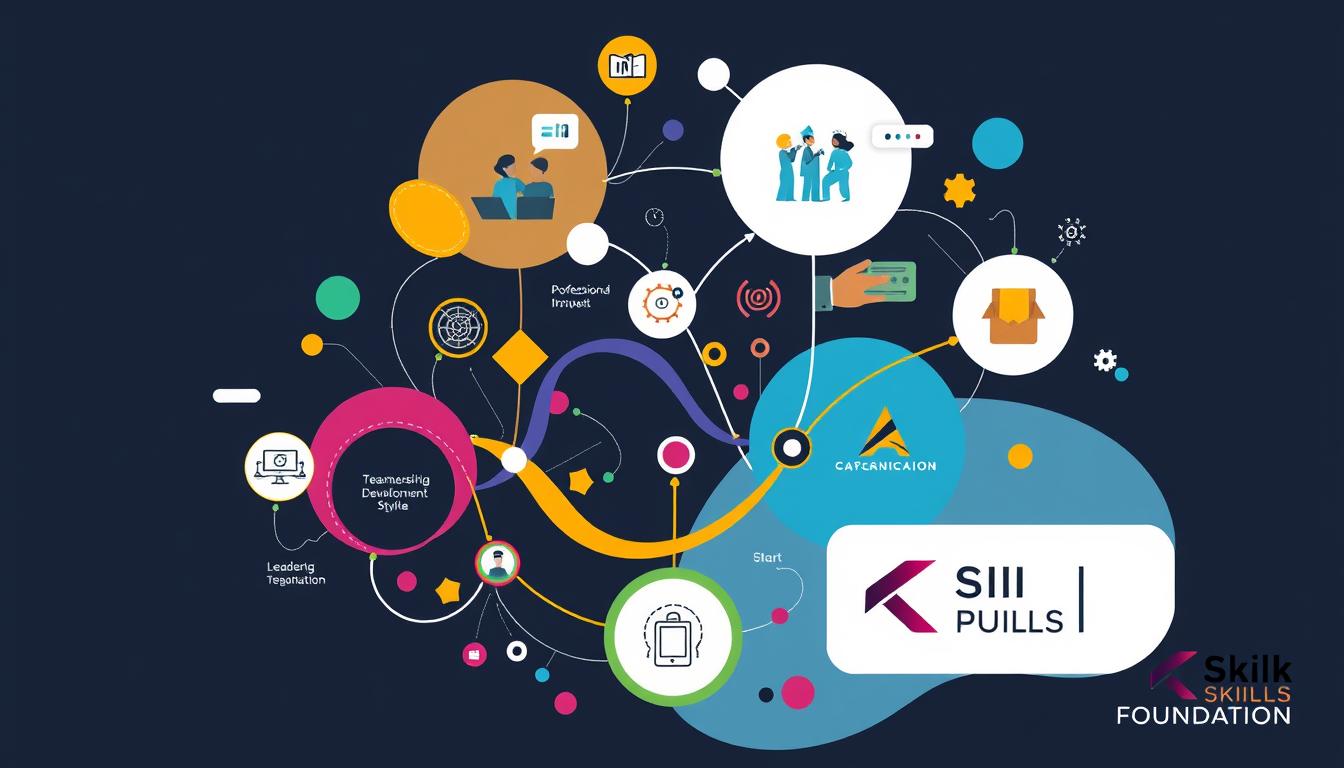Have you thought about how learning managerial skills could change your career and help your company grow? In today’s fast-changing business world, becoming a leader is key for growth. A good leadership development plan and team building can make you stand out at work.
These skills are vital. They help you grow personally and make your workplace better. By using this framework, you get the tools to succeed and keep growing123.
Key Takeaways
- Mastering managerial skills is essential for transforming career trajectories.
- Leadership development is a cornerstone of personal and professional growth.
- Effective team building plays a critical role in organizational success.
- Developing competencies enhances both individual performance and team dynamics.
- A structured framework for skill development is necessary for sustained growth.
Understanding the Managerial Skills Framework
The managerial skills framework is like a map for leaders to grow. It shows the key skills needed to lead well. Managers must balance three main areas: technical, interpersonal, and conceptual skills4.
Technical skills are important in many jobs. They include things like using equipment and software4. As you move up, you need more conceptual skills for big decisions4
Interpersonal skills are crucial for a good work place. They help leaders motivate and inspire their teams4. Companies can check their skill management by using a scale5. A good framework helps spot skill gaps and improve overall skills5.
Competency means being good at something and wanting to get better. It helps match employee skills with company goals5. Using these frameworks can make hiring and keeping employees better, with 72% of companies seeing more engagement6.
Keeping these frameworks up to date helps staff stay relevant, reducing skill gaps by 30%6. Knowing about the managerial skills framework is key for your growth as a leader. It helps you grow with your company.
The Importance of Leadership Development in Managerial Skills
Leadership development is key to improving managerial skills. It helps leaders deal with the challenges of their jobs. This lets them set goals and guide their teams to meet them.
By focusing on leadership development, companies see big wins. They see better employee engagement, performance, and happiness.
Defining Leadership Competencies
Leadership competencies are the skills and actions needed for good leadership. They help leaders motivate and build a team spirit. Companies that focus on these skills do much better.
For example, they see a 47% boost in overall performance7. Leaders who communicate well can boost employee engagement by up to 86%7. This shows how important it is to know these skills.
Key Elements of Effective Leadership
Effective leadership includes motivating and guiding others. Leaders with strong emotional intelligence and trust build better teams. Companies that invest in leadership see a 24% profit margin increase8.
Good leaders also make employees 19% happier7. This shows the power of strong leadership.
Essential Leadership Skills for Effective Management
Effective management relies on key leadership skills. These skills help teams work together and reach goals. The main skills include communication skills, emotional intelligence, and decision-making skills. Mastering these areas creates a productive work space and helps you handle challenges well.
Communication Skills
Communication skills are crucial for leaders. They help share information clearly, making it easier for feedback. Without good communication, misunderstandings and lower employee engagement can happen. Research shows that better communication can boost productivity by 21%9.
Emotional Intelligence
Emotional intelligence is also key for leaders. It means knowing your feelings and those of others. This skill helps manage relationships well in the workplace. A study found that not feeling appreciated by managers is a big issue for employees9. Leaders who show appreciation and empathy make their teams feel valued and engaged.
Decision-Making Skills
Leaders need to make smart and strategic choices. Decision-making skills involve critical thinking and being adaptable. A lot of managers’ time goes to solving conflicts, which can take up to 24% of their work hours9. Good decision-making skills can reduce these problems and make leaders more effective.
Building High-Performing Teams
Building high-performing teams is key to your organization’s success. These teams work well together, take responsibility, and share clear goals. Professor Ina Toegel says teams of eight or less work best to avoid coordination problems and keep morale high10.
Successful teams do better than individuals or other groups because of their diverse skills and experiences11.
Effective management is vital for teams to thrive. Management sets the strategy and keeps things running smoothly. Project teams, made up of different departments, use their special knowledge to get things done10. This mix of perspectives leads to new ideas and better work.
Good communication is key for high-performing teams. Setting clear goals helps everyone work together towards a common goal. Talking openly and solving conflicts helps keep everyone motivated and happy11.
Emotional intelligence also plays a big role. It helps with communication, loyalty, and engagement, all important for success. Hiring and keeping the best people, and making sure they work well together, is crucial for lasting success11. Knowing your team’s strengths and weaknesses helps improve and get better results.
| Aspect | High-Performing Teams | Low-Achieving Teams |
|---|---|---|
| Team Size | Up to 8 members | More than 8 members |
| Performance | Superior performance and competitive advantage | Basic performance |
| Management Oversight | Minimal required | High level of supervision needed |
| Morale Level | Higher morale with increased performance | Lower morale |
| Communication | Open and effective | Poor communication |
In conclusion, focusing on these traits and practices will help you build and keep high-performing teams. These teams are crucial for achieving your organization’s goals.
Strategies for Team Building and Cohesion
Building strong teams is key to success in any group. Good team building strategies help create a place where everyone trusts and works well together. This leads to a more productive and happy team.
The Role of Trust in Team Dynamics
Trust is the base of a good team. It lets members share their thoughts and worries freely. This makes the team work better together.
Managers should make sure everyone feels safe to speak up. Listening well and talking openly are key to building trust. Checking how well the team works together helps everyone grow and do better1213.
Encouraging Collaboration and Open Communication
Working together well is important. Clear goals and knowing what each person does helps a lot. Activities that bring the team together can spark new ideas and make everyone feel valued.
Talking openly and listening well helps build strong bonds. Regular feedback and adjusting plans based on what people say can make the team stronger and more effective1213.
Professional Development through Skill Building
Professional development is key to moving up in your career and improving your skills. Making a plan that fits your goals is essential. This way, you can focus on the skills you want to get better at, leading to real progress.
Creating a Personalized Development Plan
Your plan should mix technical skills with soft ones like communication and emotional intelligence. Studies show these skills are vital for success and boost team work14. Make sure your plan has clear goals, deadlines, and what you need to get there.
Utilizing Feedback for Continuous Improvement
Getting regular, helpful feedback is crucial for your growth. It helps you do better at your job and work better with others15. Harvard Business School suggests regular check-ins to understand your strengths and where you can improve15. This habit helps you stay ready for new challenges, keeping your skills sharp.

Competency Frameworks in Leadership Development
Using competency frameworks in leadership development is key for success. Creating a good framework needs careful planning and thorough assessment16. It helps identify important skills like strategic thinking and emotional intelligence, making it fit for the industry16.
These frameworks list essential skills that boost performance. They help leaders manage their teams well17.
Getting stakeholders involved early makes sure the framework meets the organization’s goals16. Tools for evaluation, setting goals, and giving feedback are crucial. They help in continuous leadership growth17.
Exceptional performance requires recognizing key behaviors in leaders. This includes skills like decision-making and communication17.
Studies reveal that 50-70% of improvement efforts fail without a solid leadership development plan18. Competency models must link to performance to ensure leaders have the right skills18.
By focusing on strengths for specific roles, leader performance can greatly improve. This drives success in business goals18.
Differentiating Managerial Skills Across Leadership Levels
As you move up in leadership, the skills needed change a lot. It’s key to know what skills are needed at each level. Skills like communication and decision-making are always important. But, the way you adapt these skills changes with your leadership level.
Understanding Level-Specific Competencies
Skills for management grow with experience and learning19. Good management is key for any company to reach its goals19. The skills needed for success change with each leadership level. For example, top leaders focus on strategy and accountability. First-level managers need to be organized and pay attention to details20.
Robert Katz found three main types of management skills: technical, conceptual, and human. Each is more important at different levels. Top leaders use conceptual skills to guide their company. First-level managers use technical skills to manage their teams19.
| Leadership Level | Essential Skills | Focus Area |
|---|---|---|
| Top Executives | Strategic Vision, Accountability | Long-term direction and organizational leadership |
| Intermediate Supervisors | Communication, Delegation | Team management and project coordination |
| First-Level Managers | Organization, Attention to Detail | Daily operations and team performance |

Practical Steps to Cultivate Managerial Skills
In today’s fast-paced business world, improving your management skills is key. You can do this by joining structured mentorship and coaching programs. These programs offer personalized advice and help grow your team.
Mentorship and Coaching Programs
Starting mentorship programs in your company can boost your leadership skills. A study shows that companies often pick the wrong people for important jobs 82% of the time21. Mentors help you see where you need to get better and use your strengths. They also improve teamwork and communication.
Regular talks with mentors build trust and boost team spirit. This leads to better management and more engagement22.
Integrating Skill Development into Daily Operations
Make skill development a part of your daily work. This ensures you keep getting better. Use reflection and open communication to learn more every day.
This way, you can handle both old and new skills, like being tech-savvy and agile. Taking on leadership roles or coaching others helps you grow. Also, celebrate your team’s wins to keep everyone motivated and growing23.
| Skill Development Method | Benefits |
|---|---|
| Mentorship Programs | Provides personalized feedback and enhances leadership capabilities. |
| Coaching | Encourages accountability and regular reflection on performance. |
| Daily Integration | Promotes a culture of continuous learning and agile management. |
| Feedback Sessions | Improves engagement and trust within teams. |
| Celebrating Wins | Creates a positive work environment and motivates team members. |
Measuring and Evaluating Leadership Effectiveness
It’s crucial to check how well leaders are doing for a company’s success. Many leaders agree that knowing what employees think is key to seeing if a leader is doing well24. They also look at profits to see if a leader is effective24. This shows if the company is doing well25.
Using many metrics is important, like checking if the team is growing and if values are being followed24.
Happy employees work better, which is why their happiness is important to check25. Sometimes, when many employees leave, it can mean the leader is helping the team grow25. There are many ways to see how well a leader is doing, like surveys and looking at how teams work together25.
Innovation is also key to seeing if a leader is doing well25. By checking goals and KPIs, leaders can learn and get better26. Tools like what customers say and what employees think help leaders understand their impact26.

The Impact of Soft Skills on Professional Growth
Soft skills play a big role in your career growth. They help you work well with others and improve teamwork. As more jobs require soft skills, learning them is key to success.
Identifying Key Soft Skills for Leaders
Leaders need to know which soft skills are important. Research shows that 90% of top performers have strong soft skills27. Employers value soft skills as much as technical skills when hiring, with 75% of them saying so27.
Skills like communication, empathy, and problem-solving are essential. They help you handle today’s fast-changing work world.
Good communication is critical; bad communication can cost 20-30% of revenue each year27. Poor relationships between employees cause 60-80% of workplace conflicts27. Learning these soft skills can help you grow professionally.
To see how soft skills help in the workplace, check out this table:
| Soft Skill | Impact on Growth |
|---|---|
| Communication | 20-30% loss of revenue due to poor communication |
| Conflict Resolution | 60-80% of organizational difficulties stem from strained relationships |
| Teamwork | 9-17% productivity increase when working in teams |
| Problem Solving | $3 to $5 return for every dollar invested in rigorous problem solving |
Improving your soft skills can boost your career and make your workplace better28.
Innovative Approaches to Leadership Training
In today’s fast-changing workplace, companies are using new ways to train leaders. These training approaches focus on doing and applying what’s learned, making learning fun and real. They help leaders grow by improving their skills for work and personal life29.
Learning programs in companies help team members share ideas and work together. They also offer coaching that fits each leader’s needs, helping them get better at their job29.

Cinépolis is a great example of a company that makes leaders through new training. They link their training to important business goals, like making more money30. They set big goals and check how well they’re doing, making sure training is effective30.
They also use tools like HBDI® to understand team thinking. This helps teams work better together and use technology well31. By being open to trying new things, companies can stay ahead and keep their values strong31.
| Innovative Approaches | Description | Benefits |
|---|---|---|
| In-House Peer Learning | Collaborative learning among peers | Enhances teamwork and knowledge sharing |
| Action Learning | Small teams tackling real-world challenges | Improves problem-solving and professional growth |
| Professional Coaching | Tailored learning experiences | Personalized growth strategies for leaders |
| Technology Integration | Utilizing tools for understanding team dynamics | Enhances motivation for tech adoption |
The Role of Diversity in Leadership Development
Creating a diverse leadership environment boosts workplace culture. Companies that value diversity, equity, and inclusion (DEI) see more creativity, engagement, and productivity32. Diverse leadership teams build trust, improving relationships with everyone inside and outside the company32.
This variety of views brings new insights to decision-making. It also creates a supportive space for inclusive leadership.
Studies show that diverse leadership attracts and keeps the best talent32. Yet, only a small percentage of executives are non-male and minority groups, with 85% being white and 77% male33. Companies lacking diversity struggle with profitability, being 29% below average33.
Adopting diverse leadership strategies makes the workplace culture richer. It also meets the values of younger workers. Millennials and Generation Z want to work for companies that value inclusion34. Companies with strong diversity programs see better customer loyalty and reputation34.
To succeed in diversity, companies must regularly check their progress. They should use annual audits and employee surveys34. Employee resource groups (ERGs) offer extra support for diversity efforts. This ensures goals are not just set but also achieved.
Challenges in Developing Managerial Skills
Developing managerial skills is tough. Leaders face many hurdles to build effective teams and boost performance. Key challenges include overcoming resistance to change and aligning training with goals. As businesses grow, adapting to these changes can stress employees, often due to bad communication and unclear goals.
Overcoming Resistance to Change
Employees often resist change because they’re unsure about new processes or expectations. Good communication is key to addressing these worries. Managers should be open and clear to reassure their team during big changes.
When employees get the vision behind changes, they tend to be more engaged and adaptable.
Aligning Training with Organizational Goals
It’s vital to make sure training matches the company’s goals. Managers should use clear strategies for performance management. This includes setting clear expectations and giving feedback that helps.
A disengaged team or training that doesn’t match real goals can cause problems. It can hurt morale and productivity.
Bad communication is a big stress for employees35. With over 12% of workers remote36, conflicts can hurt productivity and lead to losing key staff35. It’s crucial to focus on interpersonal skills and being adaptable to succeed as a manager36.
Future Trends in Managerial Skills Development
The world of managerial skills is changing fast. By 2024, companies need to keep up with the future trends. McKinsey & Company says generative AI is key for leaders to grow, making it a big part of work37. Now, learning new skills is all about using technology, so staying updated is crucial.
It’s important to see how AI can bring quick wins to work37. Leaders should look for ways to use AI to make things better and more innovative. McKinsey calls 2024 “The Year of the Manager,” showing how important it is for leaders to handle tech changes well and keep their teams happy and productive37.
The world is full of uncertainty, like the war in Ukraine and changing energy prices38. Leaders have to deal with higher costs and keeping employees happy. To lead well in 2024, skills like negotiation, being playful, and building shared goals are vital38.
Your company should focus on skills that help make better decisions in tough times38. This way, your team can make smart choices quickly when things change fast38. By following these future trends in managerial skills development, you’ll help your leaders and team succeed and stay strong.
Conclusion
A detailed Managerial Skills Framework is key for leadership growth, team unity, and career advancement. Research shows that focusing on leadership can lead to a 92% jump in better products and processes. It also boosts productivity by 52% and profits by 17%39.
This shows that improving managerial skills helps both individuals and the company as a whole. It’s not just about personal growth but also about success for the whole team.
It’s also vital to keep developing skills all the time. Companies that learn a lot tend to keep their employees 65% longer40. When people get better training, they work better and stay longer, making the team more efficient41.
By always improving, your team will stay ready for new challenges. This makes your company strong and ready for anything that comes its way394041.
FAQ
What is the Managerial Skills Framework and why is it important?
How can leadership development impact my career?
What are some core skills necessary for effective management?
What characteristics define high-performing teams?
What strategies can I use to build team cohesion?
How can I develop a personalized professional development plan?
What role do competency frameworks play in leadership development?
How can I differentiate managerial skills across various leadership levels?
What are effective methods for measuring leadership effectiveness?
Why are soft skills crucial for professional growth?
What innovative approaches can enhance leadership training?
How does diversity contribute to leadership development?
What challenges might I face in developing managerial skills?
What future trends should I anticipate in managerial skills development?
Source Links
- Build Your Leadership Competency Framework – https://www.ddiworld.com/guide/ultimate-guide-leadership-development/leadership-competency-framework
- Beyond Good Skills: A Framework for Building Teams That Thrive – https://www.linkedin.com/pulse/beyond-good-skills-framework-building-teams-thrive-christian-vasile
- 18 Key Leadership Competencies for 2024 Success – https://www.aihr.com/blog/leadership-competencies/
- 1.8 Katz’s Three Skills – https://ecampusontario.pressbooks.pub/leadershipandmanagement/chapter/1-8-katzs-three-skills/
- Unlocking Potential: The Skills Base Competency Framework – https://www.skills-base.com/competency-framework
- Build an Effective Employee Competency Framework – Shine – https://www.shineinterview.com/employee-competency-framework/
- 10 Reasons Leadership Is Important in the Workplace – https://www.sienaheights.edu/10-reasons-leadership-is-important-in-the-workplace/
- The Importance of Leadership Development in the Workplace – https://careerminds.com/blog/importance-leadership-development
- The 8 key Leadership Skills you need to know in 2024 – https://www.imd.org/blog/leadership/leadership-skills/
- How to Build High Performance Teams – https://www.thomas.co/resources/type/hr-blog/how-build-high-performance-teams
- Developing and Sustaining High-Performance Work Teams – https://www.shrm.org/topics-tools/tools/toolkits/developing-sustaining-high-performance-work-teams
- 20 Group Cohesion Strategies For Developing Teams At Work – https://getsling.com/blog/group-cohesion-strategies/
- 10 Proven Team-Building Strategies – https://trainingmag.com/10-proven-team-building-strategies/
- Top 21 Professional Development Skills | Robert F. Smith – https://robertsmith.com/blog/professional-development-skills/
- 7 Strategies for Improving Your Management Skills – https://online.hbs.edu/blog/post/how-to-improve-management-skills
- How to Develop a Leadership Competency Framework: Step-by-Step Guide – https://www.deel.com/blog/develop-leadership-competency-framework/
- PDF – https://www.kipp.org/wp-content/uploads/2016/11/KIPP_Leadership_Competency_Model.pdf
- Leadership Competency Models: Why Many are Failing and How to Make Them Flourish – The Clemmer Group – https://www.clemmergroup.com/articles/leadership-competency-models-many-failing-make-flourish/
- Management Skills – https://corporatefinanceinstitute.com/resources/management/management-skills/
- Management Skills vs. Leadership Skills: What’s the Difference? – https://www.goskills.com/Leadership-Management/Resources/Management-skills-vs-leadership-skills
- 14 Ways to Improve Your Management Skills – https://buddypunch.com/blog/improve-management-skills/
- Council Post: 12 Steps To Strengthening Your Management Skills – https://www.forbes.com/councils/forbesbusinessdevelopmentcouncil/2024/04/16/12-steps-to-strengthening-your-management-skills/
- How to Develop the 12 Management Skills You Need Most – https://www.betterup.com/blog/functions-of-management
- Council Post: How To Measure Leadership Effectiveness: 14 Essential Tips – https://www.forbes.com/councils/forbesbusinesscouncil/2021/05/28/how-to-measure-leadership-effectiveness-14-essential-tips/
- 13 Ways to Measure Leadership Effectiveness – https://6q.io/blog/measure-leadership-effectiveness/
- 3 ways to measure your leadership effectiveness – SmartBrief – https://www.smartbrief.com/original/3-ways-to-measure-your-leadership-effectiveness
- Soft Skills in the Workplace: Top Skills and How to Improve Them – https://www.mbopartners.com/blog/how-manage-small-business/why-are-soft-skills-important/
- Soft skills and their importance in the labour market under the conditions of Industry 5.0 – https://www.ncbi.nlm.nih.gov/pmc/articles/PMC10428053/
- Three Common Types of Leadership Development Programs – PeopleThriver – https://peoplethriver.com/types-of-leadership-development-programs/
- How to Create a Successful Leadership Development Program – Harvard Business Publishing – https://www.harvardbusiness.org/how-to-create-a-successful-leadership-development-program/
- Innovative Approaches to Leadership for a New Era – https://theleadershipsphere.com.au/insights/innovative-approaches-to-leadership-for-a-new-era/
- Why Is Diversity Important in Leadership? – https://www.nsls.org/blog/why-is-diversity-important-in-leadership
- The benefits of diversity in leadership and why it’s important – https://www.seenit.io/blog/benefits-of-diversity-in-leadership-why-is-it-important/
- Diversity in leadership: 6 steps you can take today – https://www.insperity.com/blog/diversity-in-leadership/
- 10 challenges managers face & how to overcome them | Perkbox – https://www.perkbox.com/uk/platform/recognition/management-challenges-and-how-to-overcome-them
- 12 Challenges Faced by Supervisors and How to Overcome Them – https://ccaps.umn.edu/story/12-challenges-faced-supervisors-and-how-overcome-them
- McKinsey’s Leadership Development Trends for 2024 – PeopleThriver – https://peoplethriver.com/what-are-the-mckinsey-leadership-development-trends-for-2024/
- Management trends for 2024: Power skills for leaders – https://www.iese.edu/standout/management-trends-leadership-skills/
- Developing Effective Managers and Potential Leaders (Conclusion) – https://americandrycleaner.com/node/127618
- PII: S1048-9843(99)00047-8 – https://cafethorium.whoi.edu/wp-content/uploads/sites/33/2021/01/Mumford_LeadershipSkillsConclusions-1.pdf
- The Essence of Effective Management: An Overview of Key Management Skills – https://www.peakframeworks.com/post/management-skills





